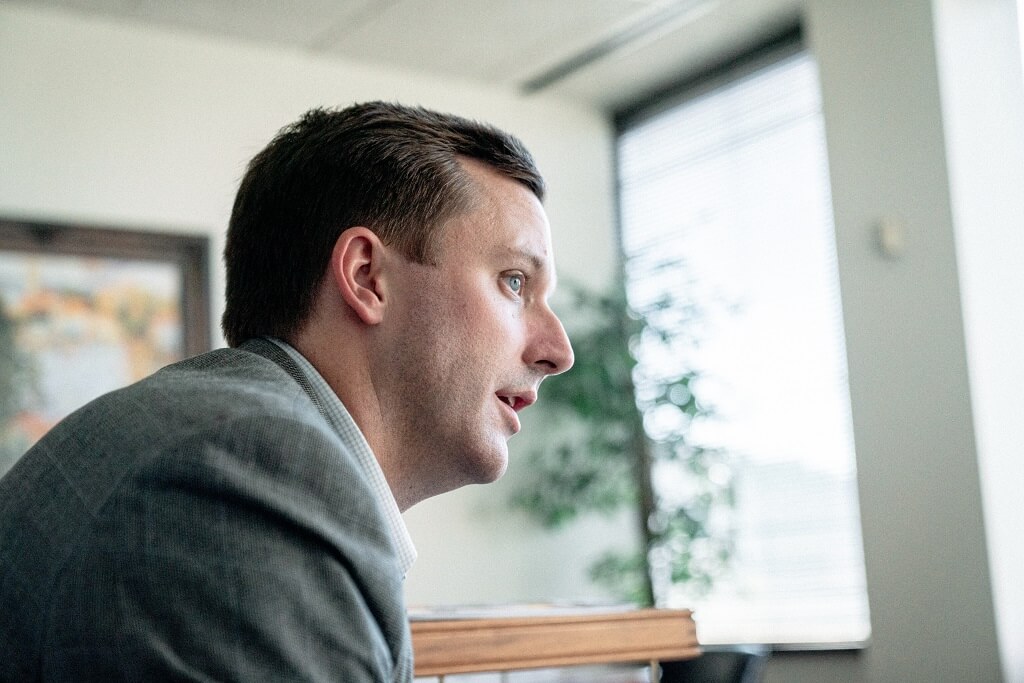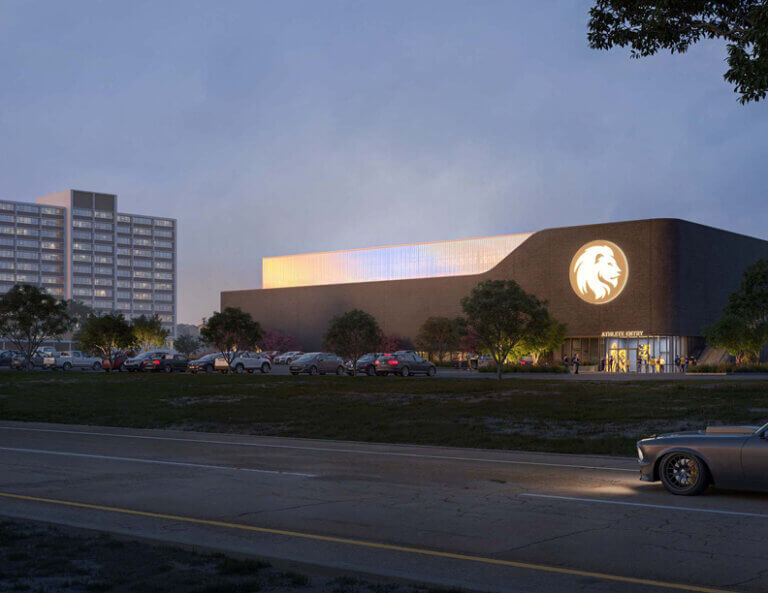
This article originally appeared on the Birmingham Business Journal’s website.
“It’s hard to be too optimistic about the innovation we’re seeing,” said Hoar Construction President Turner Burton about the construction industry.
But despite the technological advances, the young executive chafes at the construction industry’s decline in productivity over the years.
“They were able to build the Empire State Building in half the time that we’re able to do something that’s not nearly that scale now,” Burton said.
Part of the problem is communication, he said. Part of it is leadership.
“You need to know how to work through challenges and overcome obstacles and problems and get a team to come together to accomplish something really great,” Burton said. “But I think we’re losing some of that.”
Growing up in construction, Burton had a front row seat to what successful leadership looks like in the industry. His grandfather had joined the company in the 1950s and rose in the ranks to become president in the 1980s. His father, who currently serves as CEO, became president in the 1990s — a role Burton assumed in 2018.
“As a child, all the things I loved to do with my dad and my grandfather were outdoors,” he said. “We’d be traveling to go hunting and fishing and getting the time to spend with them in the car and the boat and listening to the way they talked business and how much they loved the company and what that meant to them.”
It’s a career Burton said he fell in love with as he spent his summers forming concrete before pursuing construction full-time through college.
“I spent the last 16 years hopping around throughout the country and the company trying to learn it all,” he said. “Now, I’ve been lucky enough and fortunate enough to take on this role.”
Inefficiency at construction sites has been identified as one of the biggest issues facing construction companies. How is your firm working to address that? We wake up every day trying to think about how we can be better tomorrow. We have embraced what we call our SmartBuild Initiative, which is looking for the little things you can do outside, on a job site, at an office — wherever it is — to get a little bit better and not focus on the drastic changes, necessarily, but on the opportunities to bring in new systems, new technologies — ultimately, trying to figure out ways that we can be more collaborative across the board with our architects, with our developers, with the teams that we’re working with, with trade partners, and just drive a better experience in this business. We need more communication, and we need more collaboration and just more leadership in the team.
Is the shortage in skilled labor the new normal for the construction industry, or do you think workforce issues will change in the near future? It’s hard. It will continue to be an issue. I think we’ll need some help in trying to figure out where the workforce is going to come from. I also think we’re not really paying enough attention to the broader parts of our communities that could be involved in our industry. We haven’t done a good enough job as an industry in recruiting women into the business. You can do a lot as a project manager, as a superintendent, without having a degree in construction management — or a degree at all. So how do we find the natural leaders in the community, those coming out of the military — wherever it is — that can come out and see the opportunities that are in our business.
At the craft labor level, there are more and more programs popping up that should help us. In time, that will show the opportunities and just how much fun this business is at the end of the day at all levels. So, I’m not willing to accept it’s the new normal yet. We’ve got to keep pushing and keep finding a way to improve on it.
What is your outlook for construction activity in metro Birmingham this year? I feel good about Birmingham. I like the growth we’re seeing. You’re seeing more people moving downtown, which is nice. It’s hard to get a dinner at most of the spots in town. You’ve got a vibrant social scene that’s really picked up — completely different. The projects we’re seeing coming down and being proposed in Birmingham are different than what’s been happening here in the last few years. I think it’s bringing new scale, and if they can get a few of these done, it will be really, really good for the city. At the same time, I think we still just need one or two more big employers to relocate and to come downtown and to continue that growth for us.
How do you get that large employer to relocate? I think you need to get people here. My wife was a recruiter for a while — she was in house — and she said that the only thing harder than getting someone to move to Birmingham was getting them to leave. We have seen that in our business, too. Once you settle in, it’s really a great place to raise a family.
But we can all come together as a region and start figuring out how we can support that relocation. If one of these big employers are out there looking for a place, we need to provide the best of Birmingham.
Compared to our neighbors, how can Birmingham’s construction industry consistently punch above its weight? That’s a question we get all the time is how do you have so many great contractors coming out of one city — and a city that really doesn’t have the growth at all compared to everybody else around the Southeast. I don’t have the answer to it other than I think there’s some benefit in having that many great companies putting out talent, and at the same time having to go out and explore other parts of the country for where we’re going to find work. We went west to begin with, others went east, and then we’re all kind of growing into the same footprint. But there’s going to be some magic between the old, large companies that have been here and Auburn University and Georgia Tech and everything being right here. I think that’s part of the Birmingham spirit: you’re gonna fight over your weight limit a little bit and do all right.

